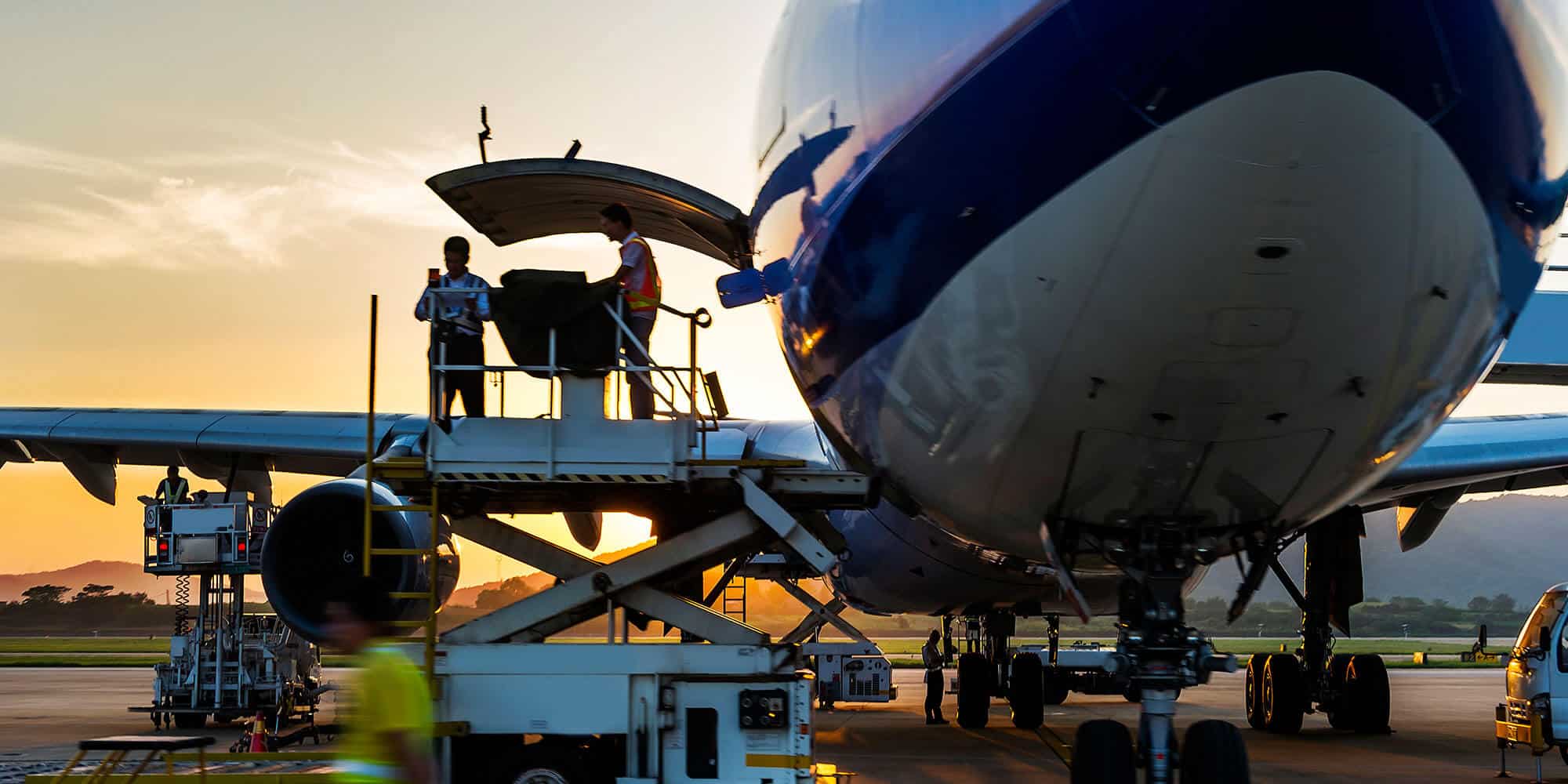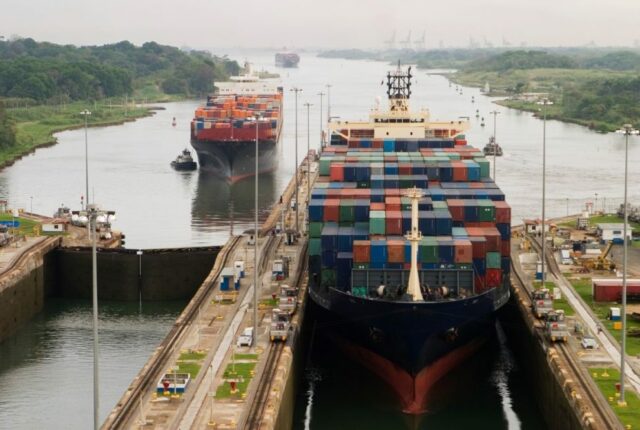
How E-commerce is Driving Growth in US Air Freight
In the last decade, e-commerce has gone from a growing trend to an unstoppable force in the US. With a few taps on a smartphone, consumers can purchase products from across the globe and have them delivered right to their doorstep.
However, this convenience doesn’t happen magically—air freight plays a critical role in ensuring that products get from warehouses to homes as quickly as possible. In fact, e-commerce has been one of the main catalysts for the dramatic growth of the air freight industry in the US. But how exactly is this sector shaping the future of logistics?
The Rapid Growth of E-commerce in the US
To understand the relationship between e-commerce and air freight, we first need to look at the exponential rise of online shopping. Over the last few years, e-commerce in the US has grown at an unprecedented rate. In 2023, the sector reached over $1 trillion in sales, with major players like Amazon, Walmart, and smaller marketplaces such as Etsy and eBay driving this surge.
With consumers becoming accustomed to fast, seamless online shopping experiences, companies are striving to meet the high expectations of their customers. This is where air freight comes in, helping retailers deliver packages quickly and efficiently. With more consumers opting for same-day and next-day delivery options, air freight has become indispensable for many businesses.
Why Air Freight is the Preferred Shipping Method for E-commerce
So, why is air freight the go-to method for shipping e-commerce goods, especially when there are other options like ground and sea shipping? The simple answer is speed. Air freight is by far the fastest way to transport goods, particularly for businesses that promise quick deliveries.
Consumers now expect their packages to arrive almost as soon as they hit “buy.” As a result, retailers are turning to air freight to meet tight delivery windows. In cases of international orders, air freight offers the added advantage of navigating long distances swiftly, something that no other mode of transportation can achieve in the same timeframe.
E-commerce Giants and Their Impact on Air Freight
Companies like Amazon are significantly driving the need for air freight. Amazon Prime’s promise of fast delivery means that the company has invested heavily in its own fleet of cargo aircraft under Amazon Air. This has allowed Amazon to bypass traditional shipping providers like FedEx and UPS, further increasing the demand for air freight infrastructure.
Other giants, such as Walmart, are also investing in air freight solutions to compete in the fast-paced e-commerce landscape. Even smaller e-commerce platforms are using air freight to maintain their competitive edge, giving customers the rapid delivery times they’ve come to expect.
Same-Day and Next-Day Delivery Trends
Same-day and next-day delivery options have rapidly become the new norm for consumers. Air freight plays a critical role in meeting these expectations. When a customer orders something at midnight and expects it by the next afternoon, only air freight can make that happen reliably. As more companies offer these quick delivery options, the demand for air freight is expected to continue climbing.
The Impact of Cross-Border E-commerce
Cross-border e-commerce has opened up a world of opportunities, allowing consumers to shop from virtually anywhere on the globe. This has, in turn, driven demand for air freight as the most viable option for transporting goods internationally. Air freight makes it possible to ship items across continents within days, supporting the globalized nature of e-commerce.
However, international logistics pose unique challenges, such as customs regulations and handling perishable goods. Yet, air freight companies are rapidly adapting to handle these hurdles and provide seamless global shipping solutions.
Technological Advancements in Air Freight
Technology is playing a massive role in transforming air freight logistics. From automation in cargo handling to advanced tracking systems, air freight is becoming more efficient and reliable. Digital tracking enables customers and businesses to follow their packages in real-time, providing transparency and peace of mind.
Drones are another exciting development on the horizon, with some companies exploring the possibility of using them for last-mile deliveries. While the technology is still in its early stages, it could revolutionize air freight in the near future.
The Role of Third-Party Logistics (3PL) Providers
Third-party logistics (3PL) providers are essential players in the air freight and e-commerce ecosystem. They help businesses manage complex shipping processes, often providing customized air freight solutions tailored to the specific needs of e-commerce companies. These partnerships allow smaller businesses to offer competitive shipping options without needing their own air fleet.
The Influence of Consumer Expectations
Today’s consumers have more power than ever. Their expectations influence how businesses operate, particularly in logistics. Quick shipping times, real-time tracking, and hassle-free returns are just a few of the demands shaping e-commerce logistics. Air freight helps businesses meet these needs, keeping consumers happy and coming back for more.
The Competitive Landscape in US Air Freight
Major air freight carriers like FedEx, UPS, and DHL are adapting to the demands by expanding their fleets and improving infrastructure. However, they face stiff competition from Amazon’s growing logistics network, which has invested heavily in air cargo capabilities. This competition is driving innovation in the air freight industry as companies look for new ways to stay ahead.
The Future of Air Freight in E-commerce
As e-commerce continues to grow, the role of air freight will only become more critical. Experts predict that air cargo demand will double within the next decade, driven by e-commerce. Technological innovations, like AI-powered logistics and electric planes, could also reshape the landscape.
The growth of e-commerce has undoubtedly driven a boom in the US air freight industry. With consumers demanding faster, more efficient deliveries, air freight has become the backbone of modern logistics. As e-commerce continues to expand globally, the symbiotic relationship between these two industries will only deepen.
FAQs
Why is air freight important for e-commerce?
Air freight ensures fast delivery, especially for time-sensitive or international shipments, meeting consumer demand for speed.
How does air freight handle international e-commerce shipments?
Air freight efficiently handles cross-border deliveries by quickly navigating customs and international shipping regulations.
Are there environmental concerns with air freight?
Yes, air freight contributes to carbon emissions, but the industry is exploring sustainable options like biofuels and carbon offsets.






